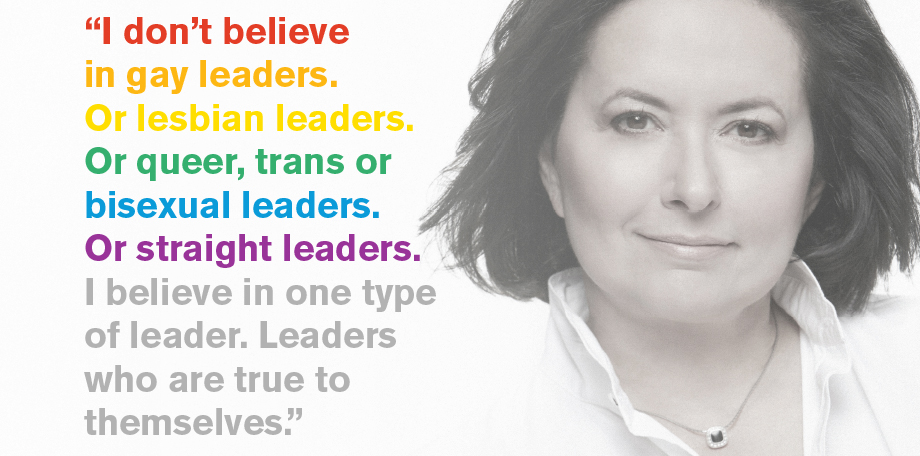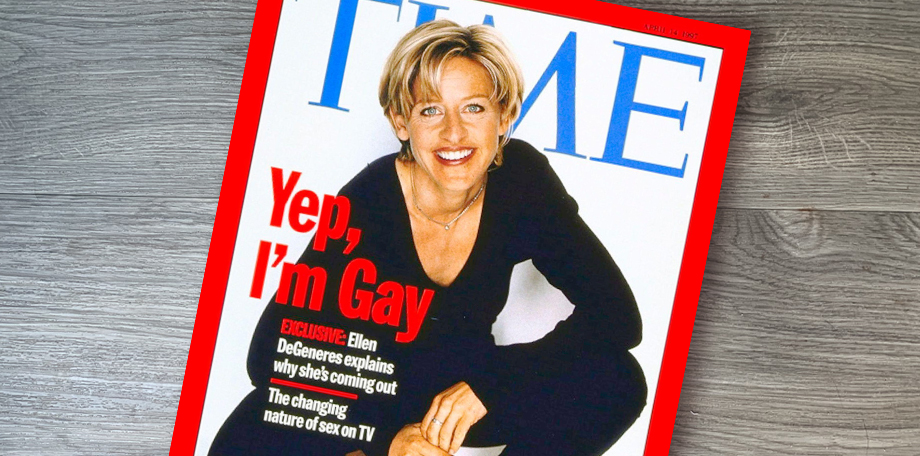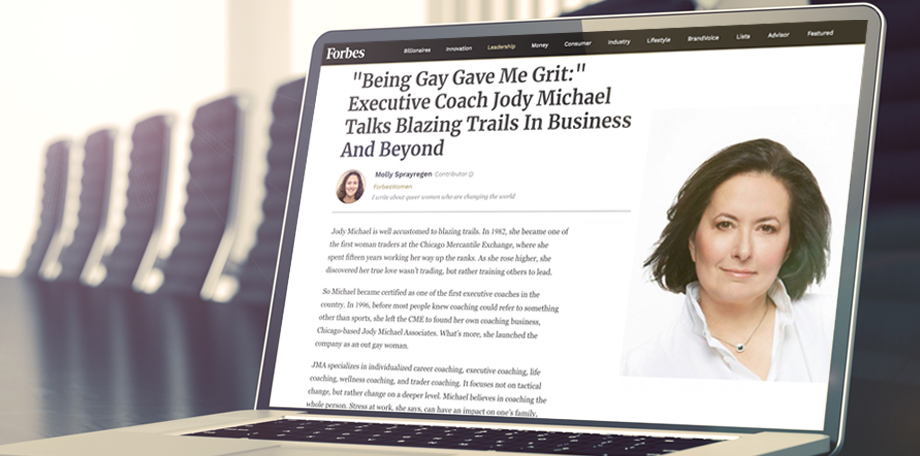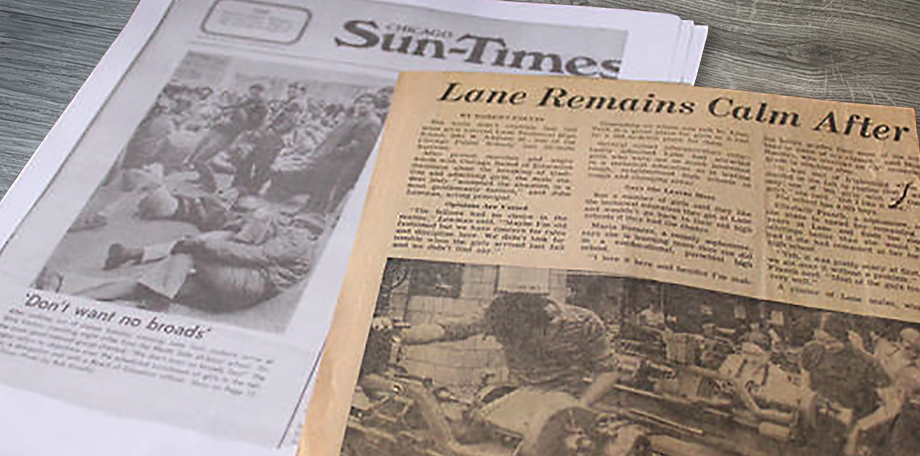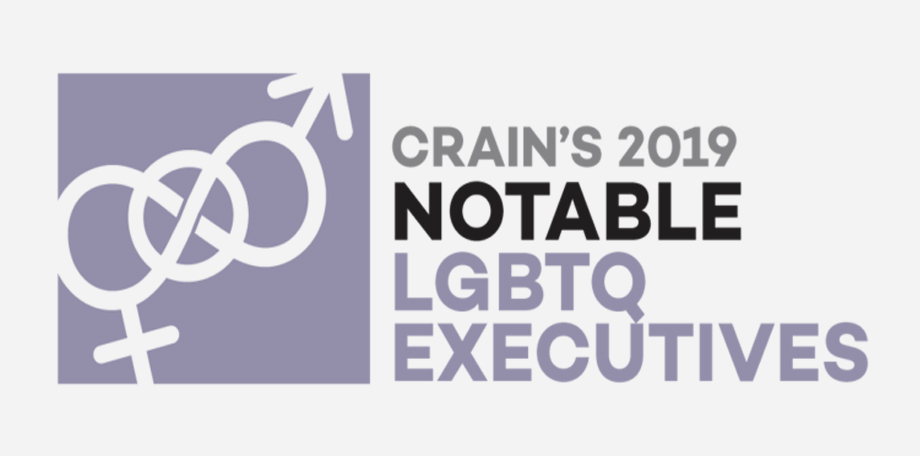Crain’s Chicago Business announced today its 2019 Notable LGBTQ Executives list. For the second year in a row, Jody Michael, CEO and founder of Jody Michael Associates, is being recognized for her influence in Chicago’s business community. All of the 84 executives profiled in the issue have made significant impact within the LGBTQ community and influenced the diversity conversation within Chicago’s larger business community.
Since launching JMA 22 years ago, Jody has never been one to shy away from her identity. But that wasn’t always the case.
COMING OUT
As one of the first female traders on the Chicago Mercantile Exchange from 1982 to 1997, and throughout her time in the finance industry, Jody hid the fact that she was gay. Like most of the LGBTQ community at that time, Jody witnessed the impact that coming out could have and knew that it would have been detrimental for her career. She watched as Time debuted a cover featuring Ellen DeGeneres in April 1997 with the instantly famous words “Yep, I’m Gay.”
The backlash was swift and intense. From hate mail to bomb threats to the eventual cancellation of the Ellen television show – Ellen DeGeneres lost everything. That had a huge impact on Jody. It confirmed her belief – it was neither safe nor economically wise to come out.
Throughout those “closeted” years, she dreamed about what it would be like to work in an inclusive organization. So when she left finance to start her own business, she was determined to lead authentically – which meant it was time to come out even if it meant people chose not to work with her or her company.
“I knew the kind of company I wanted to build and the values and ideals that would guide it,” said Jody. “The most important things to me were diversity and inclusion, and to value people over profits. I knew that if you attract, hire and retain the best people, profits would follow.” And although JMA is a small company, Jody walks the talk.
Jody strives to create a corporate culture that attracts and maintains the most qualified employees and contractors. One way she does this is by offering valued perks, including paying 100% of employee’s health insurance premiums, 401K, profit sharing, unlimited vacation days, flexible schedules, and autonomy over day-to-day responsibilities. She trusts her employees implicitly and as a seasoned career coach, she even helps guide her employees into new roles that better align with their aptitudes and interests.
“It sounds crazy, but I actually coached an employee who had outgrown her role at JMA to find her best career fit elsewhere – and at the time, she was my most valuable employee. I encouraged her to go back to school to retool and find work in a career that would optimize her creativity. And we were able to open up a position at JMA and found someone that was a better fit for the role she had outgrown – it was a win-win. When your employees are more aligned and satisfied with their careers, they are even more valuable to the team. We live by our values and that attracts and keeps the best people,” said Jody.
A RISKY DECISION
Launching a company as a gay woman was a risky business decision at the time. In fact, some of Jody’s stories from the past seem surreal.
“My first job out of college was as a teacher in the Chicago Public Schools system, ironically at my old high school, Lane Tech College Prep. On my very first day as a teacher, I was approached in the teacher’s lounge by my former high school English and journalism teacher. After exchanging some pleasantries, he bluntly asked me if I was gay. I said ‘Why would you ask me that?’ and explained that someone saw me walking in the gay pride parade and reported it to the school. I quickly responded that he was the one who taught me to always check my sources — and that he should do the same. I denied being gay,” said Jody. The truth was she saw a friend walking in the parade, so she jumped in and walked with her just for a block or two. She did not continue on the route because she knew that she could be fired from her CPS job simply for being there, but in that short time, someone had seen her. “It terrified me to think four years of college could be thrown away by walking two city blocks,” said Jody.
That experience shook Jody and brought the unfortunate realization that she would have to lie to protect her job. While working in the finance industry, she was bullied as well, finding notes on her desk that read, “We know about you.”
Even twenty-five years later, Jody still experiences backlash. Earlier this year, Forbes profiled Jody in an article about being gay and as a result, she received hateful messages from strangers on social media, and a correlated drop of followers. It’s no wonder that practically half of all LGBTQ workers are closeted at work. According to a 2018 study conducted by the Human Rights Campaign, 46% continue to hide their sexuality at work.
Though anxiety provoking, Jody says all of those early- and mid- career experiences led her to practice resiliency and fantasize about the company that she would later build and run.
OTHER LESSONS LEARNED
“When I was closeted for 15 years, I learned to become hyper-vigilant,” said Jody. “I was constantly reading the temperature of the room and peoples’ emotions and reactions. I was listening. My awareness and observational capacity were heightened, because I couldn’t afford to make a misstep. I didn’t want to be ostracized by revealing my sexuality. So, I consider that time I spent closeted as an incubator of sorts that helped develop the person I am today.”
Jody says being gay also gave her increased empathy for outsiders because she often felt like an outsider herself, a sentiment shared by much of the LGBTQ community. That feeling of being on her own was good training for becoming an entrepreneur, especially in an industry that was in its infancy. “I had to educate potential clients about executive coaching. No one knew what it was at the time, so I had to work hard to help people understand the value and how to measure ROI in a coaching engagement.”
Jody acknowledges that being female has also had an impact on her business as much, if not more than, being gay. “Women who work in predominantly male-dominated business environments are at a disadvantage if you are an entrepreneur. Studies show stark differences in bank loan funding, venture capital, opportunities offered, etc. between male and female entrepreneurs. Being on the national board of StartOut has really opened my eyes to the discrepancies, not to mention the unconscious gender bias that occurs in small ways day in and day out,” said Jody.
RESILIENCE
Looking back to her days in school, Jody shares another incredible story, and it is apparent that she needed to build her resilience throughout her life in order to keep her head above water.
“I was one of the first women to attend Lane Tech High School. When I started as a freshman there were 200 female freshmen, 200 transferring female sophomores and 5000 boys. On my first day, I stepped off the Western Avenue bus and was met by a police officer. I was a bit confused, but he kindly asked if he could escort me to my class. The school spanned a full block, and I think I’ve never had a longer walk – hundreds of protesters had turned out shouting “We don’t want no broads,” holding signs and slogans directed at attacking me and the other girls for attending. I still remember how relieved I was to finally get into my Biology 101 class. I was the only girl in the room, until thankfully, my female teacher entered. With a local news camera pointed at me, I listened as she began a ten-minute diatribe about how girls didn’t belong at Lane and that it was the saddest day of her teaching career. At the end of her talk – and before any real teaching had happened – some of the boys applauded. It was clear from the start that there was male student body, faculty and administration (females included) that didn’t want us there, and they wanted us to know it. They believed females would lower the academic standards, distract the boys, and ruin their championship football team,” said Jody.
But rather than dragging down Lane as predicted, the female students raised the bar – a feat the school now acknowledges in its official history. The school also did an about face during a reunion many years later which Jody attended.
“Some of the teachers who had taught during that time period went up on stage and formally apologized to us. They acknowledged their implicit biases, perceptions and offenses that they directed at us,” she said, remembering the event. “Honestly, that high school experience was a gift. It psychologically prepared me well for my future work in the world of men, especially in the trading pits. I knew that I couldn’t let others’ opinion of me get in the way of what I wanted to achieve in life, from high school to the corporate world.”
Jody’s resilience has been strengthening throughout her life, and it’s helped her build a successful executive coaching business in Chicago with locations in Atlanta, New York and San Francisco. JMA focuses not on tactical coaching but rather transformational change. By increasing resilience and other systemic changes, clients reap exponential improvements and successes both personally and professionally. Jody has logged over 40,000 one-on-one coaching hours and is one of only 4% of coaches worldwide who is a Master Certified Coach – the highest accolade one can earn from the International Coach Federation.
Crain’s Chicago Business’ LGBTQ issue recognizes leaders for advancing their industries, workplace equality and civic engagement in Chicago, and Jody is proud to be part of helping to change the local landscape. Jody offers the same advice to all leaders, no matter their gender or sexual identity: “Stay the course. Develop grit. Resilience is key to getting where you want to be in life, both professionally and personally. Rather than letting your negative experiences defeat you — use them to propel you forward.“

